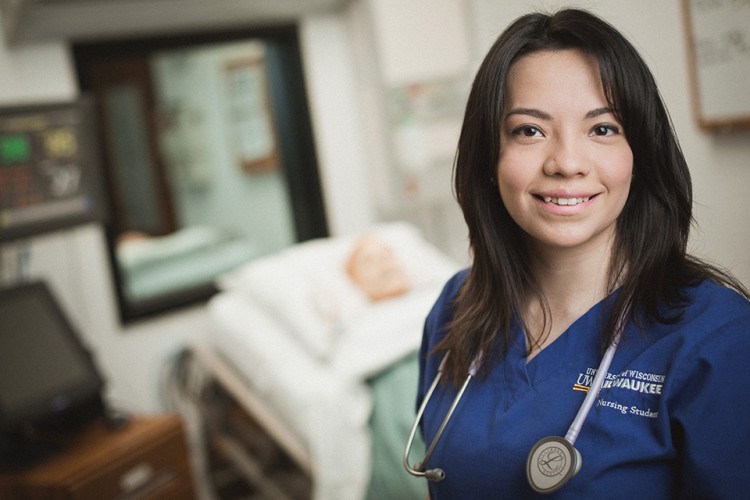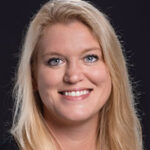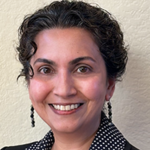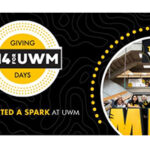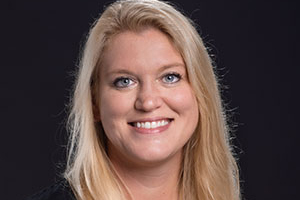- Isis Judith Lozano
- Degree: BS Nursing
- Hometown: Milwaukee
- It’s a Fact: UWM’s diversity was one of the attractions for her.
Isis Judith Lozano liked the fact that UWM was so welcoming to first-generation students like herself.
But, she was concerned that one tradition in her field of nursing – the pinning ceremony – didn’t meet the needs of those students.
So she looked at ways to change that, and succeeded in starting a new tradition for the ceremony.
In the traditional pinning ceremony, a family member who is an RN is invited to place a pin on a graduate’s collar, signifying entry into the profession. If no family member is available, the dean of the College of Nursing can do the pinning.
“Many of our students are the first from their families to graduate from college so this tradition left out many of those who helped and supported us,” says Lozano. “It didn’t seem to fit with the diversity of the university.”
Lozano had no family member who could to do the pinning. She really wanted her mentor, UWM alumna Arsha Hayalian, RN, to do the honor.
“She was always there to help me all through the program,” says Lozano, who is working 24 hours a week in the Heart Failure Unit at Aurora St. Luke’s Medical Center. She will take a full-time position there after she graduates.
So she researched the history of mentoring and the pinning ceremony, then presented to the college a proposal to adapt the ceremony to better reflect the important role professional mentors play. The change was approved and will be reflected in the next pinning ceremony, on May 10.
Lozano is part of a group of nursing students in the Nursing Endeavor Program (NEP), designed to encourage students from underrepresented backgrounds to become nurses. Each student was assigned a mentor; Hayalian is Lozano’s.
“She helped and guided me in the profession,” says Lozano. “She would give me advice on the classes and helped me develop my skills. That’s why I wanted her to be the one to welcome me to the profession at the pinning ceremony.”
Lozano loved science in high school, but wanted to go into a profession where she could work with people, particularly underrepresented people including those from her own Mexican culture and community.
She had several family members who were nursing assistants, so she believed the field would be a good fit for both her scientific interests and her people skills. “I liked the diversity of UWM, had heard it had a good program, and I wanted to stay close to home.”
Lozano, who is bilingual, also felt there was a great need for Spanish-speaking nurses. Her parents came to Milwaukee from Mexico, attended college, but weren’t able to finish. However, they always encouraged their daughter to go on to college.
Lozano herself has served as a peer mentor in the NEP program, received a number of scholarships and attended the WSNA (Wisconsin Student Nurses Association) conference several times, representing NEP and UWM.
She’s proud she was able to update a tradition in her new profession.
“I wanted to do this not just for me, but for all other first generation students,” says Lozano.
